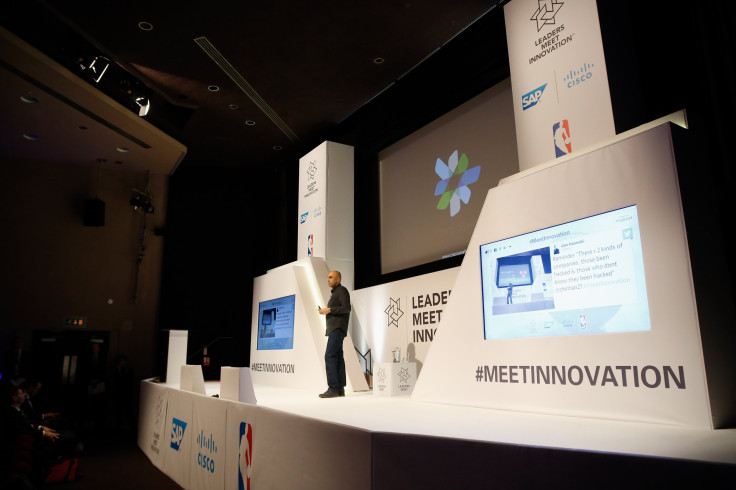Successful, Sustainable Innovation: Using Drucker Philosophies To Achieve That Goal

Imagine a developing country gives its citizens immediate access to a new light rail system, allowing them to conveniently visit major cities hundreds of miles away. These individuals had previously traveled by bus to reach larger urban hubs from their rural communities, often spending half a day or longer on vehicles in poor working condition.
At first glance, the introduction of the new light rail to this developing region could be seen as a success in innovation, a shining example of how leaps in technology can benefit disadvantaged individuals and groups. Dig deeper, however, and you’ll find that the sudden accessibility of rail transport adversely affects the residents of this country. Because the change was so sudden, thousands of bus drivers were put out of work. The bus stations, which had acted as local hubs of commerce, were eradicated, forcing family-operated businesses to close up shop. Larger urban areas quickly became overcrowded, as they lacked the resources to address the swarm of people commuting in from other regions.
There’s a reason the United Nations’ “Sustainable Development Goals” includes the word “sustainable.” Even with noble intentions, the introduction of too much innovation, or the wrong kind, can leave a struggling business or country in an even more precarious state. The key to successful innovation, in which the introduction of a new idea or process generates long-term opportunity and prosperity for a large population, is balance.
Below are examples of successful innovation, on both industry and international levels, powered by the ideas of Peter Drucker — considered the father of modern management and for whom the Drucker School of Management at Claremont Graduate University was named. Drucker’s ideas have enabled business and industry leaders to push forward and achieve prosperity.
Innovation needs to focus on people
Drucker believed that management was a human-oriented process. More than just a source of income, work provides individuals with a sense of social status and purpose, and a leader’s abilities include more than ensuring his or her workforce gets paid. Additionally, customers are more than a means of generating sales — they are the individuals responsible for determining the key identity of a business as it evolves.
For example, from the outset, Uber’s primary goal has been to provide passengers with a better transportation alternative — not necessarily to make a big buck through its groundbreaking technology. Yes, Uber successfully disrupted the taxi industry and is currently seeking a multibillion-dollar IPO, but the ridesharing company’s focus on people was the impetus for its success.
This type of sustainable innovation can be seen in past decades as well. The “Green Revolution” started around the mid-20th century, when developing nations received access to new agricultural technology. The adoption of this technology helped lead to a 30 percent increase in land area cultivated and helped prevent “dire predictions of a Malthusian famine” from coming to fruition, according to a paper in the Proceedings of the National Academy of Sciences of the United States of America. The innovative technology was successful not because it focused on profit but because it focused on people.
Innovation requires leaders who are both forward-looking and risk-aware
Mobile platforms. AR/VR. Data analytics. Industry experts have hailed all of these concepts as the next groundbreaking, innovative steps forward in media, business, and technology. But Drucker emphasized that the best leaders understand that being aware and enthused about future possibilities isn’t enough. They must also properly assess risk.
In the mid-2010s, major media companies, such as Viacom and Complex, laid off staff in hordes in their efforts to transition from text content to video. These decisions were informed by predictions that Facebook would become a primarily video-focused platform within the next few years. The supposed large audience for Facebook videos initially enthused advertisers, but their excitement was based on company-provided faulty measurements and overestimates.
The possibilities of online video clearly thrilled many leaders. Some may have been skeptical but still felt pressure to jump on the bandwagon. But it’s unlikely all of these leaders thoroughly considered the risks of such a move before pivoting and laying off hundreds of their employees. What if Facebook were to shift its trajectory? What actual profit or revenue can be generated from Facebook videos? Often times, media companies’ pivot to video itself was neither innovative nor successful because leaders did not consider the risks.
Innovation is guided by a lifelong learning process
Leaders relish stories about highly successful moguls and CEOs who ditched the books and carved their own professional paths, such as Oprah Winfrey, Mark Zuckerberg, and Bill Gates. Not only does the idolization of these dropout stories spread the wrong message — that education is not important — but it implies these leaders have not been learning throughout their careers.
Drucker believed in a lifelong approach to learning: We need to adapt and seek out new knowledge to better ourselves and the world around us. We innovate through new technologies and procedures, but successful innovation is guided by leaders who consistently seek out new knowledge and can determine the best way to implement change.
There are challenges to this lifelong learning approach, on both business and government levels. Business leaders juggle multiple responsibilities and may not be able to apply new lessons to every decision they have to make. Legislators and heads of state have a short amount of time in office and can be thwarted from using their newly gained knowledge to achieve policy goals.
As exemplified across Drucker’s other ideas, the key to lifelong learning is balance. It’s not just the continual absorption of new knowledge but determining the proper situations and circumstances in which to apply it.
Jenny Darroch, Ph.D., is the Henry Y. Hwang Dean of the Drucker School of Management at Claremont Graduate University and professor in the Master’s in Marketing Analytics Online program.
© Copyright IBTimes 2024. All rights reserved.





















